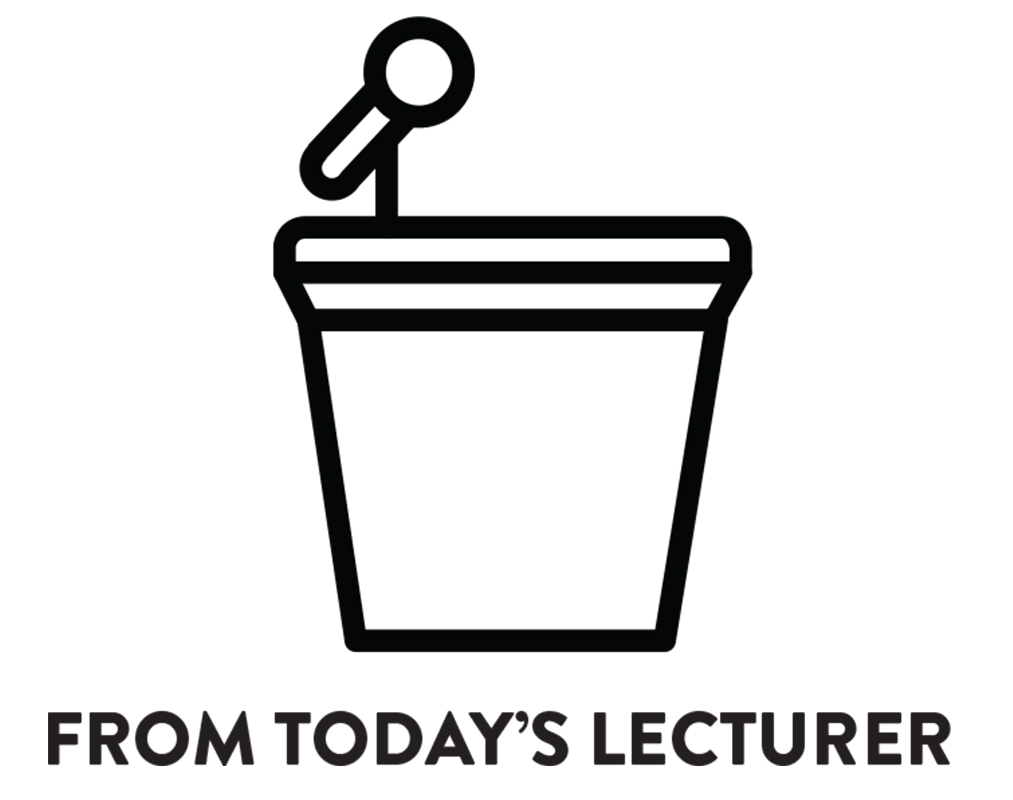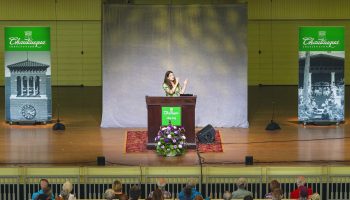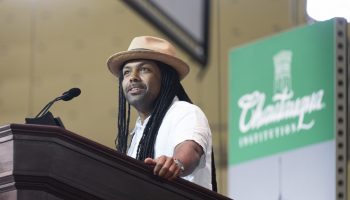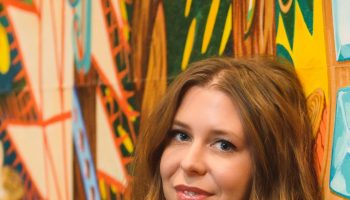GUEST COLUMN BY TAYO ROCKSON
What will society look like in the future? This is a question I ask myself often. Particularly because of the increasing digitalization and globalization of the world.
Will we be more divided or united?
Will we be more tribalistic or inclusive?
I ask myself this question a lot because I notice that many systems today promote a binary way of thinking. You have to choose this or that, and if you choose that, you’re an enemy of this.
There’s no room for nuance, it seems. What this does is put up invisible walls and barriers before we get to know others.
The reality is that we live in a world of nuance governed by binary systems. We promote a culture of debate and division without critical thinking. I am not saying debate isn’t good. My friends will tell you that I love debate as much as the next person. What I’m talking about here is when we debate things we fully don’t understand. I see this a lot on TV, whether it’s sports or politics. A lot of what I see seems to be the promotion of caricatures, generalities and stereotypes instead of individuality and intersectionality.
All you need to say is a trigger word, and boom. All gloves are off. Some people know this and use it to rile people up in order to perpetuate certain narratives, and others don’t feel like they can say anything because they risk offending others.
I fear that we are promoting an us-versus-them narrative instead of a us-with-them narrative.
That’s why we get into this bad habit of viewing states, countries, cities and nationalities as one personality.
“Oh, you’re from here, so you must be this.”
“You look like that? There’s no way you’ll understand this.”
“That’s your religion? Then you must be conservative.”
Growing up in two dictatorships, I saw how governments used these types of binary thinking to advance a message or policy to promote propaganda. It’s how colonialism and slavery grew — divide people into groups and label them enemies before even knowing them or giving them a chance to connect.
I want to promote a different way of thinking though, one I call “Nuanced Intersectionalism.” It is a framework for understanding how a variety of beliefs and identities can exist and intersect simultaneously.
In order to train our minds to practice this, I propose the following methods: Reconcile paradoxes, have a growth mindset and create room for growth.
Reconcile Paradoxes: Reconciling paradoxes involves questioning conventions and considering unorthodox perspectives to us. Some of the foundational concepts in life contradict each other. For example:
You need to fail to succeed.
The more you learn, the more you realize you don’t know anything.
Sometimes the things we hate in others are the things we hate in ourselves. So, this being the case, why not consider going into environments that on the surface look like places you wouldn’t find yourself in regularly. I think you’ll surprise yourself with what you learn. If you’re a man and there’s a conference for women, go. If you’re not a person of color and and there’s a conference for people of color, go to it.
This is how empathy, perspective taking and humanization starts.
You’ll find yourself separating your stereotypes from reality if you make this a habit. You’ll also start to see people as full humans instead of exaggerations.
Have a growth mindset: People with fixed mindsets seek to validate themselves while people with growth mindsets seek to develop themselves. Every day you wake up, understand that there are well over 7 billion people in the world. That alone means that there are more than seven billion thoughts. This coupled with the fact that our brains are neuroplastic, or malleable, means that everyone can change and grow through application and experience.
Understanding these two things will help keep you humble and remind you that there’s always something to learn. A habit you can work on developing throughout your day, even in mundane moments, is asking yourself about the other sides to conversations you have regularly. Being able to do this will help you see the larger picture of things as opposed to just your view.
The last habit I’ll suggest under this point is to learn how to ask open-ended questions instead of leading questions. Ask questions that invite people to share their stories instead of ones that force people to confirm your beliefs.
When you learn to love a life different from your own, the world becomes a little closer.
Create Room For Growth: This one is so important — so, so important. Mistakes are inevitable, particularly when you’re dealing with people with different values. A lot of times your intent may not match the impact and as a result of that impact, you may be tried in the court of public opinion.
Another potential scenario is that you or someone you know might make a mistake out of ignorance and that can cause you to look at that person in a different light.
I’ll tackle these two scenarios:
First up is intent versus impact. When your intent doesn’t match up with the impact, it is imperative to understand that we all have different ways we see and hear things. We have different filters we see the world through. So one thing I recommend doing is always asking if what you heard is what you think is happening. You could say something like, “I’m not sure if you meant this, but I just want to understand because this is how I translated what you said.”
Commit to open dialogue.
Also, if you make a mistake, own up to it. Clarify what you meant, and then ask for ways to adjust next time. It’s important to know that it’s not about you and how you feel when you make a mistake. It’s about about how your words and actions affected the other person. Learn from your mistake, and adjust for the future.
Speaking of mistakes, what if someone does something insensitive that attacks your identity? How do you decide whether to forgive or not?
My ultimate role model for this is Nelson Mandela. After being jailed for nearly three decades, he personified forgiveness by meeting with some of the people who jailed him and choosing reconciliation over settling scores. By so doing, he helped move South Africa to a better place. Mandela realized that the ignorance came from archaic beliefs and a lack of exposure, so he chose to be the bigger person.
That type of act admittedly is not the easiest, but that’s why it’s important to understand intent and impact. So how do we get to a level where we can forgive and allow room for growth? It’s by learning how to see the big picture and reminding ourselves of the humanity in people. It doesn’t mean that we excuse immoral behaviors. I’m saying that we can start to recognize that humans can make very poor decisions and whenever we recognize a desire to change, let’s use those situations as teachable moments.
The cost of not forgiving can sometimes lead to a culture that prevents growth because people will start to keep things to themselves. Forgiveness restores hope and not forgiving creates separation. Through forgiveness and embracing differences, we can heal a world and help it move past its mistakes.
Reconcile paradoxes, have a growth mindset and create room for growth.
All of this takes patience, reflection and curiosity, but the effort and time is worth it. Everyone has a place in the world. Let’s create spaces for multiple stories. Let’s acknowledge that we are more than just one thing and it’s OK. Just because we are not the same doesn’t make anyone less than or more than. Let’s stop attacking identities, individualities and values. We need to respect differences. Just as we shouldn’t be ashamed of who we are, let’s not let others be ashamed of their differences.
I’d like to encourage us to regularly practice seeing the world through fresh eyes. Let’s also regularly ask ourselves what traditions are worth maintaining and what traditions are worth evolving. Let’s adopt a fluid way of thinking.
They say those who do not learn from history are doomed to repeat it, so in order not to repeat history, we should strive to be informed by the past and cater to the future.
Examine your own behaviors, and see how you are contributing to the culture of black and white instead of gray.
We are at a critical space in time. The culture that we live in allows for certain types of behavior, and we sometimes don’t support the ones trying to express themselves.
Don’t be too focused on justifying your actions instead of understanding the impact of your actions.
Don’t be so concerned with being well-meaning people that you don’t invest in the well-being of others.
What we have to realize is that we create the collective socialization of certain behaviors and the only ones who can help us, is us. So let’s be better, and fight to create a better place for us.
It’s not our differences that divide us. It’s our inability to recognize, accept and celebrate those differences.
Embrace nuance.
Tayo Rockson is CEO of UYD Management — a strategic leadership and consulting firm that helps corporations improve their bottom line by incorporating diversity, inclusion, hiring, retention and social justice strategies. Rockson is an authority on communicating effectively across cultures. He is the host of the podcast “As Told by Nomads,” the no. 1 cross-cultural podcast in the world, recently ranked as the no. 2 business podcast in the world by Entrepreneur and CIO.






